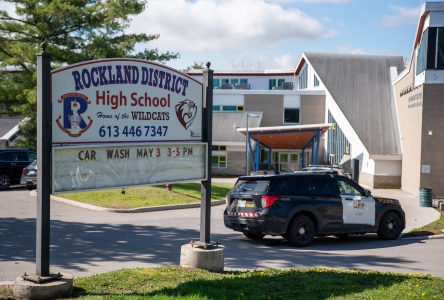“My real concern is for our small secondary schools,” said John McAllister, chairman of the Upper Canada District School Board (UCDSB) during a May 30 phone interview. “We are talking about the viability of small secondary schools.”
A recent announcement from Education Minister Stephen Lecce declared that all Ontario school boards must offer virtual learning as an option for students at the start of the 2021-2022 school year. Distance learning has been the primary means of education for almost all students, both elementary and secondary since March 2020 when the provincial state of emergency for health took effect because of the pandemic. Attempts to reopen classrooms during the current school year have been sporadic because of renewals of provincial lockdown orders.
School board worries
Last month the UCDSB sent a brief to the ministry outlining its concerns about plans to make distance learning a permanent option for the provincial education program. McAllister noted that distance learning programs have worked well to ensure students continue their education during the pandemic.
“We’re not against remote learning,” he said. “But a pandemic response is not a permanent option.”
McAllister’s concern is that the ministry is trying to apply a one-size-fits-all idea to all school boards in the province without considering the student number differences between large urban schools and small rural schools.
“I am standing up for small schools,” he said. “This may work well in Toronto, Hamilton, and other places. But it doesn’t work in Eastern Ontario where every student (registeredthe ) counts.”
McAllister observed that class size and staffing for small rural schools are often different compared to large urban schools. He gave as an example a Grade 12 physics class that might have 15 students at a rural school. If five students decided to do their physics studies through virtual learning then the school could end up dropping Grade 12 physics from its curriculum because there are not enough students to justify the expense of assigning a classroom and a teacher for the course.
He also noted that the ministry’s demand could also affect the budget revenue situation for many small rural school boards. The ministry could offer full-time online learning for high school students in either English or French through TVO/TFO.
The worry is that school boards would end up losing some of the provincial Grants for Student Needs funding (GSN) they get as part of their annual operation budgets. Students that enrolled in full-time virtual learning through the ministry would no longer be considered as part of the total student enrolment for the school board region where they lived so there would be less GSN money from the ministry for that school board. During its own budget plan the school board would either have to find other revenue sources to make up for the GSN funding lost or consider cutting back on other expenses or eliminating some programs.
Lobby action
The UCDSB has asked the provincial government to form a royal commission on the future of education before making any “significant changes” to Ontario’s education setup. That includes making online learning a permanent option for students.
McAllister noted that almost two dozen other school boards have expressed concern about the ministry’s demand. The Ontario Public School Association and the Elementary Teachers Federation of Ontario have also urged the provincial government to reconsider its plans.
Meanwhile McAllister has begun lobbying for support of the UCDSB’s position from local governments and other groups. He has made presentations to the United Counties of Stormont-Dundas-Glengarry council and the regional councils for Grenville and Lanark counties. He is waiting for a response from the United Counties of Prescott-Russell (UCPR) to his request to make a presentation to UCPR council.



